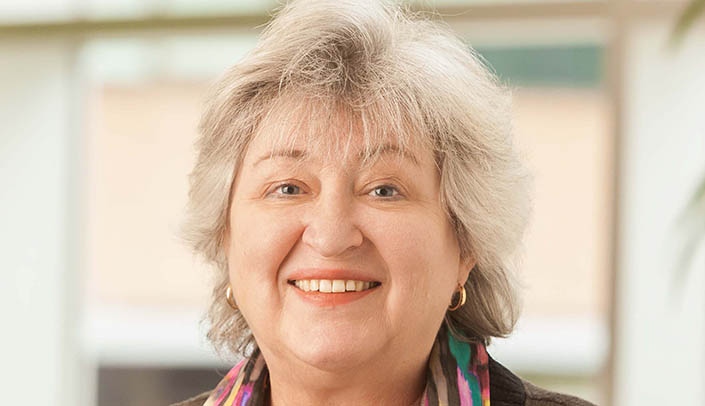A study led by a UNMC researcher found that a one-month antibiotic regimen to prevent active tuberculosis disease (TB) in people living with HIV was at least as safe and effective as the standard nine-month therapy. The study is published in the current issue of the New England Journal of Medicine.
The study determined that adults and adolescents in the international study were more likely to complete the four-week regimen — consisting of daily doses of the antibiotics rifapentine and isoniazid — than the standard nine-month daily regimen.
“These study results will change treatment guidelines on a global scale and will impact millions of people,” said Susan Swindells, M.B.B.S., professor of internal medicine-infectious diseases at UNMC and the lead author of the study. “We hope it will make it much easier for many more people to get treatment for TB infection.”
Globally, TB kills more people than any other infectious disease, and it is the leading cause of death for people living with HIV.
Other UNMC study authors included Courtney Fletcher, Pharm.D., and Anthony Podany, Pharm.D., both in the College of Pharmacy.
“The promise of this work and being published in the NEJM is a statement of its importance,” said Dr. Fletcher, professor and director of the antiviral pharmacology laboratory at UNMC. “This is the goal of every clinical researcher — to develop new and better therapies and improve human life.”
Between 2012 and 2014, the study enrolled 3,000 people 13 years of age and older living with HIV in Botswana, Brazil, Haiti, Kenya, Malawi, Peru, South Africa, Thailand, the United States and Zimbabwe, and followed them for three years. Participants either lived in an area with a high TB burden or had had a skin or blood test indicating latent TB infection.
Prophylactic antibiotic therapy to stop active TB from developing is effective, but current preventive regimens are lengthy, can be difficult for people to complete, and carry the risk of side effects such as liver damage. A six-to nine-month course of daily isoniazid has been the standard in many TB-endemic countries, although WHO recommendations include different options ranging up to 36 months in length for people living with HIV.
Prior preclinical studies had suggested that an ultra-short course of treatment may be as effective as a longer regimen. Researchers suspected that it also may increase treatment adherence. The study results confirm both — the ultra-short regimen was as effective, and treatment completion rates were better.

Hearty Congratulations to the team. Great work!
Congratulations to the team. This will be a great step forward.